
Electronics
Scope & Guideline
Championing Open Access to Cutting-Edge Research
Introduction
Aims and Scopes
- Advanced Electronics and Circuit Design:
Research on innovative circuit designs, including low-power, high-speed, and high-efficiency circuits, with applications in various domains such as telecommunications, computing, and renewable energy. - Machine Learning and AI in Electronics:
Exploration of artificial intelligence and machine learning techniques applied to electronic systems, including predictive maintenance, anomaly detection, and intelligent decision-making in IoT. - Wireless Communication Technologies:
Development and optimization of wireless communication systems, focusing on emerging technologies like 5G, IoT, and satellite communications, addressing challenges such as bandwidth, latency, and security. - Energy Management and Renewable Systems:
Research on the integration of renewable energy sources, energy storage, and smart grid technologies, emphasizing efficient energy management and sustainable practices. - Embedded Systems and IoT Applications:
Innovative designs and applications of embedded systems in various fields, including healthcare, smart cities, and industrial automation, highlighting IoT connectivity and data processing. - Signal Processing and Image Analysis:
Advancements in signal processing algorithms and techniques for image analysis, including applications in medical imaging, remote sensing, and video surveillance. - Cybersecurity in Electronic Systems:
Research on security challenges and solutions in electronic systems, particularly focused on IoT security, data protection, and resilience against cyber threats.
Trending and Emerging
- AI-Driven Solutions in Electronics:
There is a significant increase in research applying artificial intelligence and machine learning to various electronic applications, from predictive maintenance to intelligent data processing. - Sustainable and Green Technologies:
Research focusing on renewable energy technologies, energy-efficient systems, and sustainable practices is trending as global emphasis on sustainability grows. - Quantum Computing and Quantum Technologies:
Emerging interest in quantum computing and its applications in electronics is evident, with researchers exploring new architectures and algorithms. - Cybersecurity in IoT and Embedded Systems:
With the expansion of IoT, there is a growing focus on cybersecurity measures and frameworks specifically designed to protect interconnected devices and systems. - Advanced Imaging and Sensing Technologies:
Research in novel imaging techniques and sensor technologies is on the rise, particularly those incorporating AI for enhanced data interpretation and processing. - 5G and Beyond Communication Systems:
Publications related to the development and optimization of 5G networks and future communication systems, including their integration with IoT, are increasingly prevalent. - Data-Driven Approaches in Electronics:
The application of big data analytics and machine learning in electronics design and testing processes is gaining traction, indicating a trend towards data-driven methodologies.
Declining or Waning
- Traditional Hardware Design Techniques:
As the field advances towards more integrated and intelligent systems, traditional hardware design methodologies are becoming less prominent. Focus has shifted towards software-defined approaches and AI-driven designs. - Conventional Robotics:
Research in conventional robotics seems to be waning as interest grows in autonomous systems and AI-enhanced robotic solutions, leading to a decline in traditional robotic applications. - Basic Circuit Simulation Methods:
With the rise of advanced simulation software and tools that integrate machine learning, basic circuit simulation methods are becoming less frequently published, as researchers seek more sophisticated approaches. - Standalone Embedded Systems:
The focus is increasingly on interconnected and IoT-enabled systems, leading to a decline in standalone embedded system research as integration becomes the norm. - Analog Signal Processing:
There's a noticeable reduction in publications centered on traditional analog signal processing techniques, as digital processing and machine learning methods gain traction.
Similar Journals
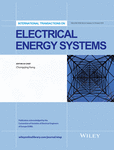
International Transactions on Electrical Energy Systems
Driving Collaboration in Power Technology ResearchInternational Transactions on Electrical Energy Systems is a distinguished peer-reviewed journal published by WILEY-HINDAWI, focusing on the dynamic field of electrical energy systems. With an impactful reach, this journal, with ISSN 2050-7038, has established itself as a prominent resource for researchers and practitioners in electrical and electronic engineering, energy engineering, and power technology since its inception in 2012. As of 2022, the journal transitioned to an Open Access model, ensuring widespread accessibility to cutting-edge research and advancements. It is recognized for its strong academic standing, holding a Q2 quartile ranking across multiple disciplines, including modeling and simulation. The journal's Scopus ranks reflect its influence, with rankings in the 76th to 87th percentiles across various fields. The International Transactions on Electrical Energy Systems is dedicated to fostering innovation and encouraging collaboration within the energy community, making it an essential platform for knowledge dissemination and discussion.

IEEE Latin America Transactions
Transforming Ideas into Impactful ResearchIEEE Latin America Transactions is a distinguished journal published by the Institute of Electrical and Electronics Engineers (IEEE), focusing on the broad and impactful fields of Computer Science and Electrical and Electronic Engineering. With an ISSN of 1548-0992, this journal serves as a vital platform for scholarly communication, featuring high-quality research articles that contribute to advancements in these technical domains. As of 2023, it holds a commendable Q2 ranking in Computer Science (Miscellaneous) and a Q3 classification in Electrical and Electronic Engineering, reflecting its significant contributions to the field. The journal spans from 2003 to 2024, ensuring a rich archive of contemporary and relevant research. Researchers and professionals can access its articles without open access restrictions, enhancing its visibility and reach across the global scientific community. Set against the backdrop of its operational base in Piscataway, NJ, this journal not only serves as an academic repository but also plays a crucial role in bridging knowledge gaps in Latin America and beyond.
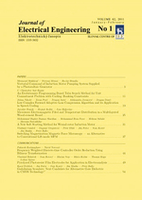
Journal of Electrical Engineering-Elektrotechnicky Casopis
Elevating Standards in Electrical Engineering Research.Journal of Electrical Engineering - Elektrotechnicky Casopis is a distinguished peer-reviewed journal published by Slovak University of Technology, dedicated to advancing the field of Electrical and Electronic Engineering. With an ISSN of 1335-3632, this journal aims to disseminate high-quality research findings, innovative methodologies, and significant technological advancements that contribute to the development of electrical engineering practices. Operating since 2004, it embraces an open-access model to enhance the visibility and accessibility of scholarly articles, thereby fostering knowledge exchange within the global research community. The journal holds a respectable Q3 categorization in the field, ranked 544 out of 797 in Scopus, indicating its growing influence within the discipline. Through rigorous peer-review processes, it provides a platform for researchers, professionals, and students alike to publish their work and stay informed on cutting-edge developments. Located in Bratislava, Slovakia, the journal is an essential resource for anyone involved in the rapidly evolving world of electrical engineering.

Elektronika Ir Elektrotechnika
Empowering Research for Tomorrow's TechnologiesElektronika Ir Elektrotechnika is a premier academic journal dedicated to the field of electrical and electronic engineering, published by Kaunas University of Technology, Lithuania. With an Open Access model since 2004, this journal ensures that cutting-edge research is accessible to a global audience, facilitating the dissemination of knowledge and fostering innovation in the engineering community. The journal is currently categorized in the Q3 quartile for Electrical and Electronic Engineering as of 2023 and holds a Scopus ranking of #473 out of 797, placing it in the 40th percentile. Covering a diverse range of topics from emerging technologies to foundational research, Elektronika Ir Elektrotechnika serves as an invaluable resource for researchers, professionals, and students alike, supporting the advancement of both theoretical and practical aspects in electrical engineering. As we converge towards the years 2008 to 2024, the journal invites submissions that contribute to the evolving landscape of the discipline, aiming to inspire future innovations and collaborations.
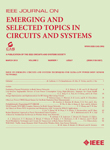
IEEE Journal on Emerging and Selected Topics in Circuits and Systems
Transforming concepts into cutting-edge solutions.IEEE Journal on Emerging and Selected Topics in Circuits and Systems is a prestigious peer-reviewed journal published by the IEEE - Institute of Electrical and Electronics Engineers, aimed at advancing the field of electrical and electronic engineering. With its ISSN of 2156-3357 and E-ISSN of 2156-3365, this journal has established itself as a leader in the exploration of innovative concepts and applications within circuits and systems since its inception in 2011. It is recognized for its high impact factor, being categorized in the Q1 Quartile for electrical engineering in 2023, and is ranked 126 out of 797 journals in the field, placing it in the 84th percentile according to Scopus rankings. As a valuable resource for researchers, professionals, and students alike, the journal focuses on emerging technologies and selected topics that contribute to the evolution of circuit designs, signal processing, and system architecture. Although it does not offer open access, the relevance and content of the journal ensure it remains at the forefront of electrical engineering discourse, continually fostering innovation and knowledge dissemination among the scientific community.
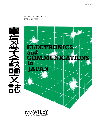
Electronics and Communications in Japan
Advancing communication technologies for a connected future.Electronics and Communications in Japan, published by WILEY, serves as a vital platform for researchers and practitioners in the fields of applied mathematics, electrical and electronic engineering, and computer networks and communications. With a focus on advancing the understanding and development of communication technologies, this journal has been disseminating valuable research since its inception in 1975, including significant contributions from 2008 to 2024. While it currently holds a Q4 ranking in several categories including Physics and Astronomy, Applied Mathematics, and Signal Processing, it offers an essential outlet for emerging ideas and practices in these disciplines. As an open-access journal, it ensures that cutting-edge research is accessible to a global audience, supporting collaboration and innovation within the academic community. With an ISSN of 1942-9533 and an E-ISSN of 1942-9541, Electronics and Communications in Japan not only contributes to the scholarly discourse but also plays a critical role in shaping the future of technology and communication.

Jordan Journal of Electrical Engineering
Empowering Research for a Sustainable FutureJordan Journal of Electrical Engineering, published by TAFILA TECHNICAL UNIVERSITY (TTU) in Jordan, serves as a critical platform for disseminating groundbreaking research in the fields of electrical engineering, energy systems, and related disciplines. With an ISSN of 2409-9600 and an E-ISSN of 2409-9619, the journal is committed to promoting advancements in energy engineering, biomedical applications, control systems, and signal processing among others. Despite its recent establishment in 2023, it has been indexed in multiple categories within Scopus, receiving rankings that reflect its emerging role in the academic community. Researchers and professionals are encouraged to contribute and access cutting-edge articles through open access options, ensuring that knowledge is readily available to all interested parties. As the journal continues to grow, it aims to bridge gaps in knowledge and stimulate dialogue, thereby supporting innovation and practical applications in the engineering sector.

IEEE Canadian Journal of Electrical and Computer Engineering
Transforming Knowledge into Practical SolutionsWelcome to the IEEE Canadian Journal of Electrical and Computer Engineering, an esteemed publication by IEEE CANADA, dedicated to advancing the field of electrical and computer engineering. Since its inception in 2021, this journal has served as a vital platform for scholarly communication, encouraging the dissemination of innovative research and practical applications within the realms of electrical and electronic engineering, as well as hardware and architecture. With an impressive Q3 ranking in both categories for 2023, the journal is gaining recognition among academics and professionals alike, asserting a solid position within the competitive landscape of engineering publications. The journal is accessible as an open access resource, ensuring that groundbreaking studies are made available to a global audience, fostering collaboration and knowledge transfer. Published in Canada, the journal aims to highlight research from this vibrant region while also welcoming contributions from international experts, ultimately propelling scholarly discourse in electrical and computer engineering forward.

Electrica
Advancing electrical innovation for a brighter future.Electrica is a prominent open access journal dedicated to advancing the field of Electrical and Electronic Engineering. Published by AVES since its inception in 2018, it has rapidly established itself as a crucial platform for disseminating high-quality research and innovative findings within the engineering community. With an ISSN of 2619-9831, Electrica operates under a rigorous peer-review process to maintain its scholarly integrity while promoting accessibility and knowledge sharing. Positioned in the third quartile of the 2023 rankings for Electrical and Electronic Engineering on Scopus, the journal has garnered a significant following, ranked #490 out of 797 in its category, reflecting its growing impact in the field. Researchers, professionals, and students can benefit from the wealth of resources available through this journal, as it not only provides a space for emerging ideas but also fosters collaboration and dialogue among experts. The journal's commitment to disseminating impactful research continues to shape the future of electrical engineering in Turkey and beyond.
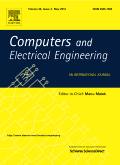
COMPUTERS & ELECTRICAL ENGINEERING
Empowering Innovation in Technology and Engineering.COMPUTERS & ELECTRICAL ENGINEERING is a premier academic journal published by PERGAMON-ELSEVIER SCIENCE LTD, based in the United Kingdom. Established in 1973, the journal has consistently contributed to the fields of Computer Science, Control and Systems Engineering, and Electrical and Electronic Engineering. With an impressive impact factor and ranked in the top quartile (Q1) across these domains, it is recognized as a pivotal resource for researchers, practitioners, and students alike. The journal aims to disseminate high-quality research articles, reviews, and technical notes, with the goal of advancing understanding and fostering innovation within and beyond its scope. Researchers can enjoy unparalleled access to cutting-edge findings and technological advancements through contributions that span both theoretical frameworks and practical applications, making it an essential platform for anyone dedicated to exploring the intersections of these dynamic fields.